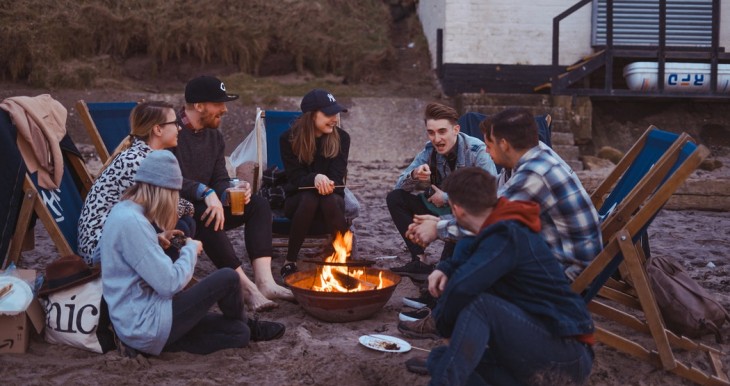It has been a particularly emotional summer at URJ Camp Coleman, given that one of its former campers, 14-year-old Alyssa Alhadeff, was among the 17 students murdered in February’s Stoneman Douglas High School shooting in Parkland, Florida.
“Camp Coleman has been my home during the summer for the last 17 years, and when something happens that affects the community in the camp, it affects me as if I were there,” says Hanoch Greenberg, Director of Operations for The Jewish Agency’s Summer Camp Shlichim program, who serves as a specialist supervisor and the “ambassador of fun” at Camp Coleman. “My relationship with the Shlichim in the U.S. led us to act, and to think about how to immediately connect with the camp community after the tragedy, and to take care of them.”
Each summer, The Jewish Agency sends its North American Summer Camp Shlichim to Jewish summer camps across the continent to represent Israel as a living, thriving Jewish state. These Israeli emissaries participate in, and are integrated into, all aspects of programming in their assigned camp settings. This summer, a total of 1,360 specialists, counselors, and educators were dispatched to North America for the camping season, where they reached more than 10,000 American-Jewish camp counselors and tens of thousands of campers. Fifty years ago, the Summer Camp Shlichim program began with just two emissaries.
For Hanoch, each summer at the Reform movement’s Camp Coleman in Georgia is a formative experience that he does not forget. Specifically, it has enabled him to embrace Jewish pluralism.
“I came from a religious Orthodox family, and joining a Reform camp seemed like the most distant thing to do as an Orthodox Jew,” he says. “I initially did not want to work at a Reform camp because it was something was not done in my family, it was not acceptable. I grew up in a home that was totally unfamiliar with the world of Reform Judaism.”
Yet at Camp Coleman, Hanoch says he “discovered a facet of Judaism that I was not exposed to, such as egalitarian prayer for men and women, pluralistic prayers and cultural aspects of the prayers, and Reform communal life that I was not aware of. I started to understand that I was becoming part of the entire Jewish community.”
He continues, “The important thing that happened to me in the camp was that my vision of Judaism became complex, rather than dichotomous. When my parents came to visit me at Camp Coleman in 2008, I told them that the camp was Reform and the sky did not fall. They were happy to visit me there and to learn about the camp.”
In 2012, for Camp Coleman’s 50th anniversary, Hanoch organized a celebration that gathered 150 Shlichim who had worked at the camp during the last 20 years.
“I feel that the camp has become my home,” he says. “Since 2001, I have served in the camp in two roles: in an educational capacity, and for the past eight years overseeing the camp’s delegation of Shlichim. My job is to integrate the delegation into the camp’s life and culture as seamlessly as possible.”
Thanks to his experience at Camp Coleman, Hanoch has also incorporated Jewish pluralism into his life back home in Israel during the rest of the year.
“In my search for communal life in Israel, I found a Reform congregation in Netanya which I connected to with all my soul,” he says.
Learn more about Summer Camp Shlichim >
-
This story was originally reported by Nathan Roi for The Jewish Agency for Israel



 0
0


